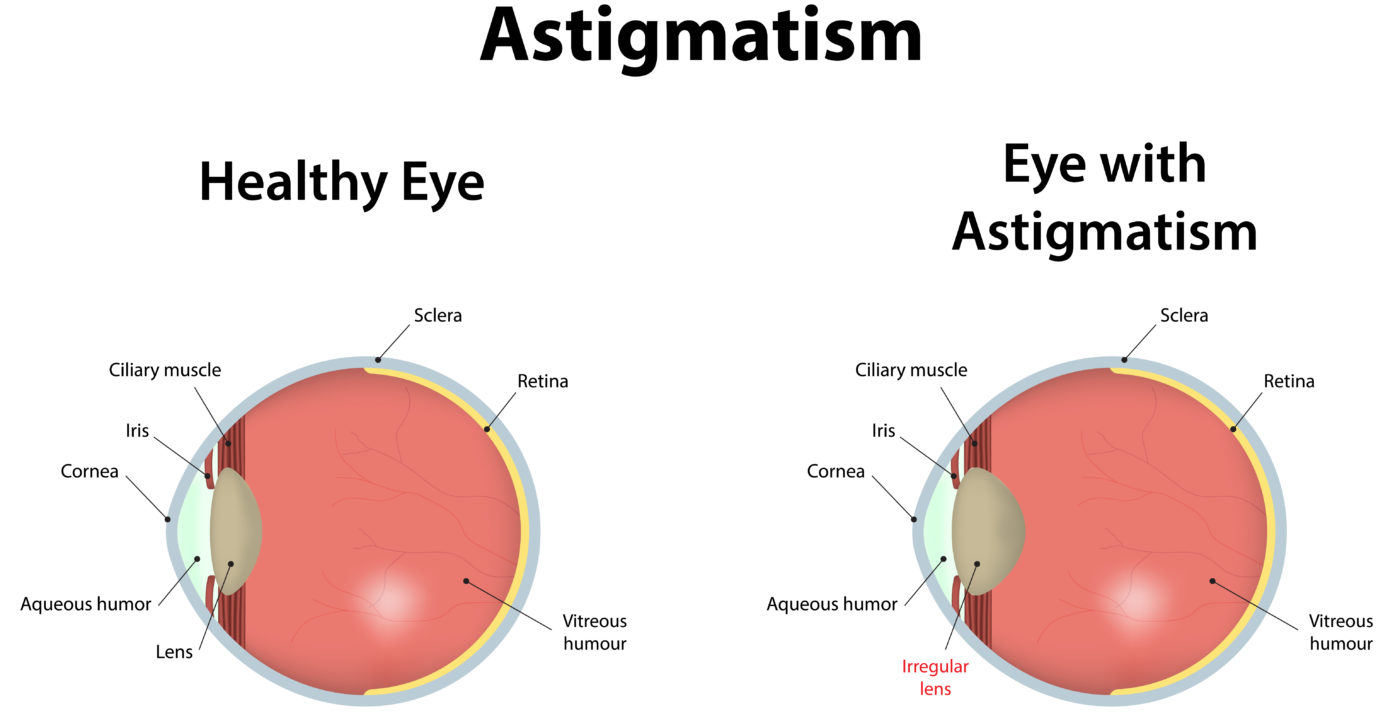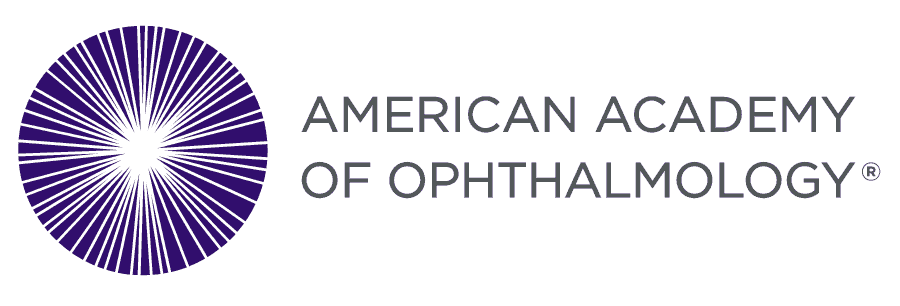Astigmatism is a curvature defect in the cornea or lens of your eye.
When your cornea or lens isn’t smoothly curved, light rays don’t refract properly. As a result, vision at close and far distances may be blurred or distorted. This is a common eye ailment, and it is unknown as to why the corneal shape varies from person to person.
Astigmatism symptoms may include:
- Blurry or distorted vision
- Eyestrain
- Headaches
- Squinting
- Eye discomfort
Although astigmatism may include these symptoms, they are always signs of astigmatism and could be related to other issues. In order to receive proper diagnosis of your symptoms, you will need to see an eye doctor, as an eye examination and visual acuity test are crucial to understanding and treating your specific condition.

What to expect during your eye examination:
During your appointment, a variety of measurement technologies may be utilized to accurately diagnose and measure your astigmatism.
A phoropter can assist in determining which type of lens should be used to correct your eyesight. An eye doctor will ask you to look through a series of lenses and have you inform them which options enhance your vision the most. Based on your responses, the eye doctor will select the optimal lenses which offer you the clearest vision.
Corrective lenses can also be determined using an autorefractor – it flashes light into the eye and tracks how it changes as it bounces off the back of the eye.
A keratometer is a device that measures the curvature of your cornea and may be used during your exam. Another device that may be used is a corneal topography machine which gives you more information about the shape of your eye’s surface.
Glasses and contact lenses can correct mild to moderate astigmatism. Soft toric contact lenses are widely used to treat many types of astigmatism, as well as rigid gas permeable lenses. However, it is advantageous to research the various lens selections to select the ones that best fit your needs.
Refractive surgeries such as LASIK, LASEK, or PRK can improve your vision, and minimize your reliance on glasses or contact lenses. Your ophthalmologist will determine if you would benefit from the procedure based on a thorough analysis of your overall eye health.
Astigmatism may be an inconvenience, but there are effective ways to treat it. The numerous options available to patients suffering from this condition make each individual case more easily treatable.
Scheduling an appointment with a specialist will help you determine what options are available to improve your vision.






